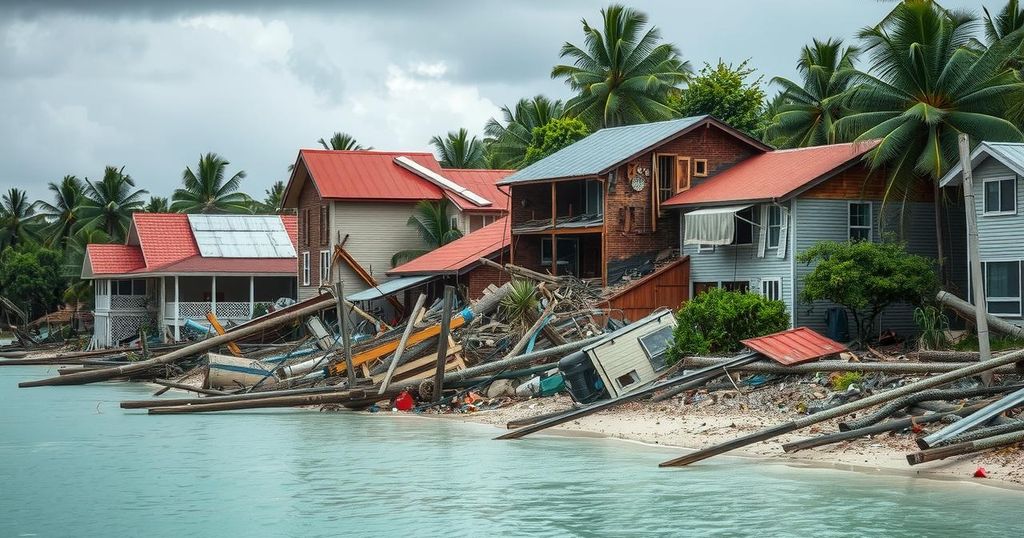Devastating Cyclone Chido Hits Mayotte, Thousands Feared Dead
Cyclone Chido struck Mayotte, leading to fears of thousands of deaths. With destructive winds of 140 mph, the cyclone devastated communities, flattening neighborhoods and necessitating emergency shelters for the displaced. French authorities are engaged in rescue operations, while the storm advanced towards Mozambique, raising concerns of further impacts.
On December 15th, a devastating cyclone, known as Cyclone Chido, struck the French territory of Mayotte, resulting in catastrophic damage and widespread panic. While the official death toll remains at 11, local leaders predict that the number of fatalities could reach into the thousands as rescue operations are underway and assessments of the destruction continue. This cyclone, reaching wind speeds of up to 140 miles per hour, represents one of the most powerful storms to hit the region since 1934, leaving communities in ruins and residents in dire need of assistance.
The cyclone has severely impacted the population of Mayotte, an island in the Indian Ocean with an estimated 320,000 residents, many of whom live in impoverished conditions. As a result of the cyclone, entire neighborhoods were reportedly flattened, with reports of uprooted trees and overturned vessels. The French government has dispatched approximately 1,600 personnel to assist with relief efforts and ensure the safety of the remaining population amidst fears of looting. The challenging conditions faced by rescue teams have complicated efforts to determine the full extent of casualties.
The situation is exacerbated by the cultural practice of hastily burying the deceased within 24 hours, which complicates official counts of fatalities. Local officials express growing concerns that the death toll may escalate considerably as recovery efforts proceed. Social services, including schools and gyms, have been converted into emergency shelters for approximately 100,000 individuals whose homes are deemed unsafe.
In the wake of Cyclone Chido, the storm advanced to Mozambique, where it is predicted to potentially impact 2.5 million people through flooding and infrastructure damage. UNICEF has indicated its readiness to provide essential humanitarian services in the affected areas, as the region deals with not only the aftermath of the cyclone but also ongoing socio-political tensions.
The cyclone that struck Mayotte is a significant climatic event in a territory that has grappled with poverty and limited infrastructure. Mayotte, an overseas department of France, has been recognized as the European Union’s poorest territory, and the cyclone exacerbated existing vulnerabilities faced by its residents. With a population predominantly composed of impoverished families, this natural disaster poses a critical challenge for local and national authorities in delivering timely and effective aid. Furthermore, the Indian Ocean region is susceptible to cyclones, which necessitates preparedness measures to mitigate human and material losses during such events.
In conclusion, Cyclone Chido has inflicted severe devastation in Mayotte, with fears of a high death toll emerging amidst ongoing rescue and recovery operations. The challenging circumstances complicate the assessment of damage and loss of life. As the storm progresses towards Mozambique, the region faces further humanitarian challenges, stressing the need for immediate support and assistance for the affected populations in Mayotte and beyond.
Original Source: www.thetravel.com




Post Comment